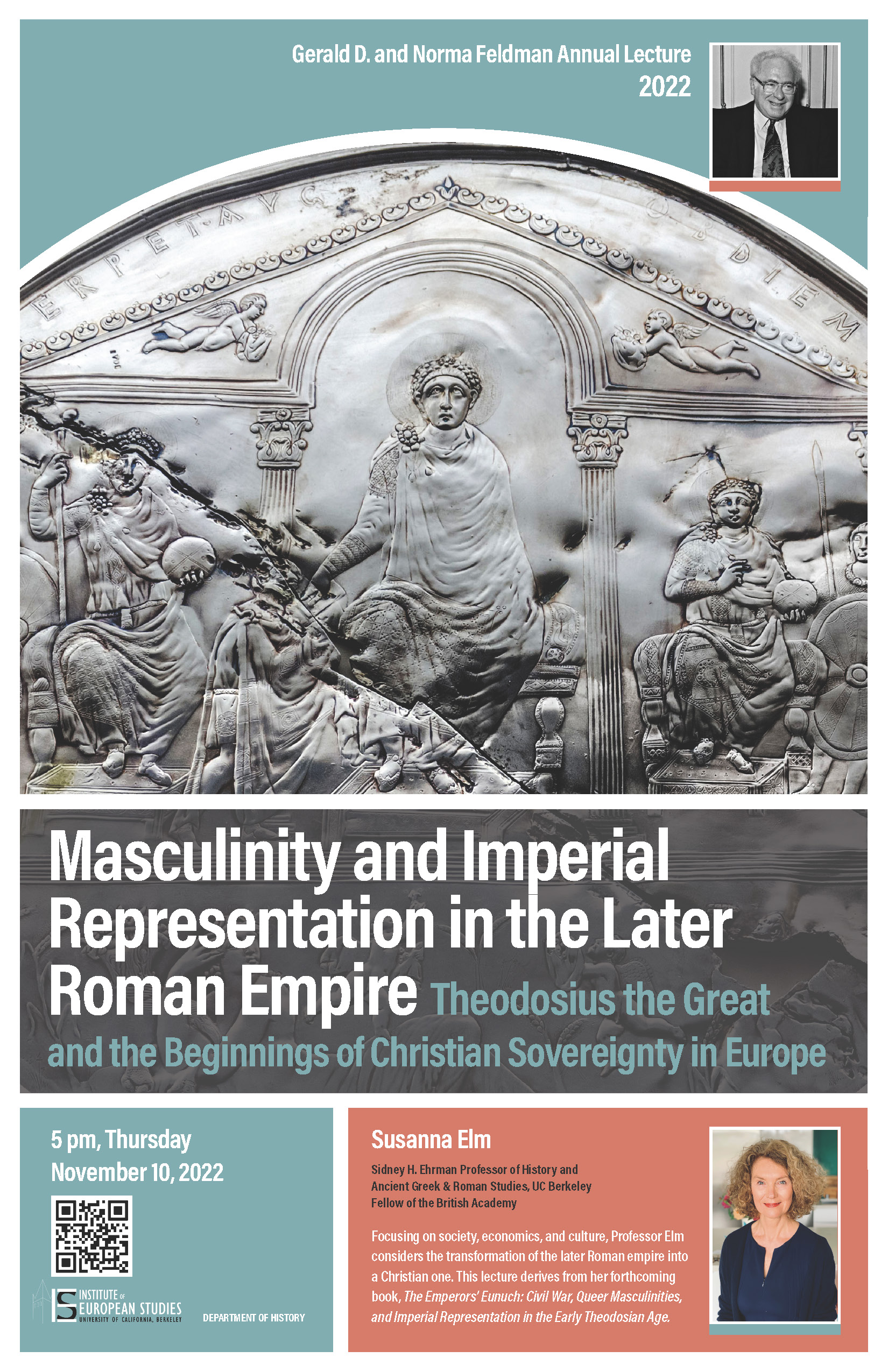Gerald D. and Norma Feldman Annual Lecture | Masculinity and Imperial Representation in the Later Roman Empire
Telegraph Room at the Residence Inn by Marriott Berkeley, 2121 Center Street
Registration is required. Please register online here.
Susanna Elm, Sidney H. Ehrman Professor of History and Ancient Greek and Roman Studies at UC Berkeley
Masculinity and Imperial Representation in the Later Roman Empire: Theodosius the Great and (the Beginnings of) Christian Sovereignty in Europe
The Roman emperor Constantine the Great is usually considered the first Christian Roman emperor. It is certainly true that Constantine made Christianity a legal Roman religion, but the emperor who really laid the foundation for divinely authorized Christian rulership was the emperor Theodosius “the Great” some sixty years later. Theodosius, like Constantine and most Roman emperors before him, was considered sacred and divine. As divine ruler he embodied and represented the apex of virtue, of everything Romans considered essential in a man and leader – virtue in fact derives from the Latin word vir, meaning elite male. How then did Theodosius transform Roman imperial rule into a Christian ideal? How did he conceive of himself as the most sacred and divine yet Christian vir and emperor? How did he make his vision of divine Christian Roman sovereignty visible? The Christian orator Pacatus’s praise of Theodosius’s victory in a civil war offers essential insights into the signal transformation of the divine Roman emperor into the Christian sovereign the emperor initiated and that was to last for centuries to come.
Susanna Elm is Sidney H. Ehrman Professor of History and Ancient Greek and Roman Studies at UC Berkeley and a Fellow of the British Academy. Her interests are the later Roman empire and its transformation into a Christian empire with a focus on social, economic and cultural topics. This lecture derives from her current project, The Emperors’ Eunuch: Civil War, Queer Masculinities, and Imperial Representation in the Early Theodosian Age (forthcoming with UC Press). In addition, her research focuses on Augustine of Hippo, enslavement, and taxation (Augustine the Economist), an edited volume War and Community in Late Antiquity (forthcoming, Cambridge), as well as collective decision making in matters divine with Duncan MacRae and Emily Mackil and the BCSR. She is author of Sons of Hellenism, Father of the Church: Emperor Julian, Gregory of Nazianzus, and the Vision of Rome (UC Press 2012).
Due to the ongoing COVID-19 pandemic, we strongly recommend that everyone in attendance wear a mask at all times. Please arrive on-time to ensure you will have a seat. Thank you for your cooperation and understanding.
If you require an accommodation for effective communication (ASL interpreting/CART captioning, alternative media formats, etc.) or information about campus mobility access features in order to fully participate in this event, please contact Ray Savord at rsavord@berkeley.edu or (510) 642-4555 with as much advance notice as possible.
Presented by the Institute of European Studies and co-sponsored by the Center for German and European Studies, Department of History, Berkeley Center for the Study of Religion, Ancient Greek and Roman Studies, and Department of Gender and Women’s Studies.
 Click here to download the poster.
Click here to download the poster.

